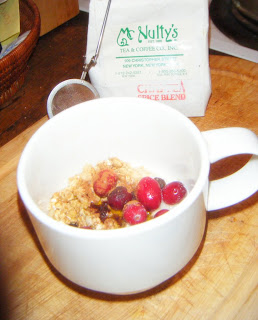We must avoid buying larger quantities of food, because even pre-packaged foods have suggested servings that are sometimes nearly twice the amount than the recommended portion size. The easiest way to avoid consuming larger portions while eating out is to order an appetizer and a side or a main course and a side as your meal at a restaurant. Remove whatever comes with your main course dish and replace it with veggies or just push it off your plate and request a side of steamed veggies. As I have explained in a previous post ("Keeping Cooked Foods Delicious and Nutritious"), steamed veggies are the healthiest way to consume them (besides raw), because most of the vitamins and nutrients stay intact, unlike other cooking methods of cooking at higher temperatures.
It is also important to make sure that your waiter tells the chef to substitute butter for olive oil wherever it is used. You may think that egg white omelette or halibut that you're eating is a good choice, but most restaurants cook everything in butter to "add flavor" when they're really just adding bad fat. I say "bad fat" because olive oil is in the "good fat" group of healthy fats unlike those solid "bad fats" that make you unhealthy and gain weight. 'Clean Plates' has an online guide to help you make better restaurant choices, I highly recommend it: http://cleanplates.com
Cooking and eating at home is the easiest way to keep the portions small and avoid extra calories in general. Use smaller plates and bowls rather than large ones so that you don't feel encouraged to fill up. As you can see in the photo below, I even eat my cereal in a coffee cup! Add vegetables before other protein and starches (good carbs only, please) and measure sauces and dressings with a spoon rather than pouring it directly onto your food. Drinking lots of water before and during your meal is a great way to avoid "empty eating" and excessive alcohol consumption - juice doesn't count!
The most important thing to remember when it comes to eating is to follow the "hara hachi bu" method in Japan: Stop eating when you are 80% full. This is another reason why it is so important to eat slowly and chew each bite as many times as you can, because it takes about twenty minutes for our stomachs to communicate with our brains to determine how full we are. When we claim to be "starving", it is simply the brain sending signals to the stomach that its time to eat. Wait at least fifteen minutes for this feeling to pass before eating so that you can avoid overeating and eating too fast. It may take some time for you to get used to this method (it did for me), but its so worth it!
Being completely full makes us feel bloated and uncomfortable because its not healthy! By adding this method of eating with organic foods and eliminating processed foods and drinks, making greens and healthy grains the main part of your meals and consuming healthy snacks, your health, weight and overall well-being will improve, its already making a big difference for me!
My homemade granola (fiber, potassium, iron) with organic cranberries (proanthocyanidins, antioxidants), raisins (iron, calcium, protein, Vitamin C, fiber), flaxseed oil (omega-3s, Vitamin B, manganese, magnesium, fiber, antioxidants, etc.), cinnamon (reduces fasting blood glucose and cholesterol) and almond milk (Vitamin A, Vitamin D, riboflavin, iron). As you can see, I enjoy brewing my favorite chai tea the old-fashioned way!















It's nice blog I have really enjoyed keeping up with you on this blog.This is very useful post for everyone. Thank you so much this post.
ReplyDelete______________________
Painting from photographs